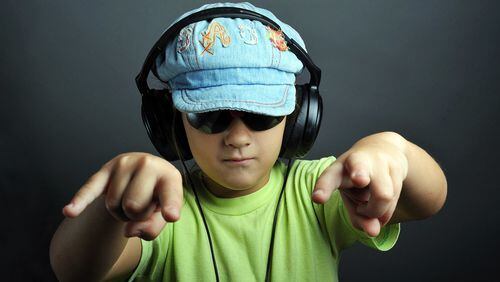Forget about the traffic. What's really driving parents crazy these days are the song lyrics blasting from their car radios.
Between Meghan Trainor belting out that "boys like a little more booty to hold at night," and Jeremih asking someone to "put it down on me," there's raciness at every turn.
The days of sheltering children from suggestive lyrics, as Tipper Gore advocated in the '80s, are in the rearview mirror. As a member of the Parents Music Resource Center, Gore successfully argued for the placement of parental advisory stickers on music albums to warn about sex, drugs and violence.
But considering the new wave of indelicate content, millennial families seem to have few options, short of turning the radio off.
Not so fast, said Dr. David C. Rettew, director of the Pediatric Psychiatry Clinic at the University of Vermont College of Medicine.
"Probably the best strategy is discussion rather than prohibition," he said. "They've heard these words and ideas before but probably don't really think about their meaning that much."
Not sure how to open up a discussion? Rettew suggests sharing your feelings about certain lyrics instead of trying to censor a song.
"If your teen is playing a song that says something disparaging about women, for example, a comment like 'Wow, that is pretty offensive,' or 'Did you hear that?' lets your child know that you are listening and don't approve while still respecting their independence."
For the younger set, Rettew said more direct monitoring makes sense, which means popping in an age-appropriate CD, if need be.
"Kids don't need a phone when they're 6, and parents should feel comfortable restricting access to certain media that is too much for them," Rettew said, adding that news stories might be even more disturbing to young kids than pop lyrics.
"While young children don't need to hear songs about getting drunk and having sex, they also don't need to hear a news report about the latest mass shooting," he said.
In the long run, Rettew said, what's going to affect kids is not what they hear in a song but what they hear from their parents.
That's a sentiment Tipper Gore still stands behind.
"In this era of social media and online access, it seems quaint to think that parents can have control over what their children see and hear," she told Rolling Stone magazine in 2014. "But I think this conversation between parents and kids is as relevant today as it was back in the Eighties. Music is a universal language that crosses generations, race, religion, sex and more. Never has there been more need for communication and understanding on these issues as there is today."
About the Author






